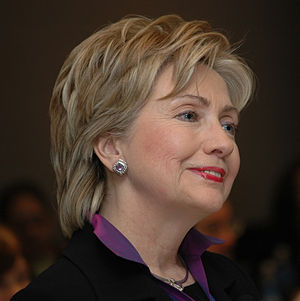
Image via Wikipedia
Commentary by Carlos Polo
Editor's note: Carlos Polo is the Director of the Latin American office of Population Research Institute (PRI).
June 16, 2010 (PRI) - From June 6 to June 8 of this year, Member States of the Organization of American States (OAS) met in Lima, Peru, and declared once again their "commitment to peace, security and cooperation" among its members.
The reality is quite different.
Those who look carefully will find that OAS is paying little attention to the implementation of "mechanisms to deal with threats, traditional and new, that affect the region." On the contrary, when PRI attended the meeting, we witnessed political lobbies working to focus public attention on fabricated "crises," while neglecting real eme

Image via Wikipedia
The "sexual orientation and gender identity" lobby
The attempt to make the concept of "sexual orientation" binding through the OAS, one of the Clintons' big initiatives, has little to no support in Latin America. In fact, such a move has already been proven to have no roots in popular demand in any of our countries. For example, the 2008 Ibero-American Summit for "Youth and Development" in El Salvador was expressly rejected by the host country as well as Nicaragua, Panama and Mexico. This was because subscription and ratification of the Ibero-American Youth Convention included questionable content related to sexual orientation. From that date the ratification of this document by the other countries ground to a halt.
The 40th OAS General Assembly seemed certain to go better for them. Its promoters were empowered by the participation of Hillary Clinton, a champion of so-called reproductive and sexual rights (read: abortion). Even in private dialogue sessions held on Monday during the event "sexual orientation and gender identity" was discussed as needing urgent approval.
One of the participants of the event, a production sector representative, complained that the event members showed clear preferences for non-traditional sexual orientations (i.e., lesbian, gay, transgender and bisexual tendencies). "In a region plagued by extreme poverty, economic crisis and unemployment, industries threatened by giants such as China, instability and insecurity about the arms race or border issues, drug trafficking, assaults on democracy everyday, etc, we had to use the limited time to listen to a woman claiming her right to lesbianism," he lamented.
The key play of the LGBT lobby was the draft resolution, pre-approved in the OAS Permanent Council. The resolution was actually part of a comprehensive package of resolutions to be discussed in a very short time, a package that came to a whopping 105 items.
As it was not humanly possible to have time to seriously discuss each of these matters, the adoption of a comprehensive package of draft resolutions by the General Assembly became a mere formality, with no possibility of debate. The General Committee met in private and worked it all out before lunch on June 8, the last day of the event. On the same afternoon, the General Committee informed the General Assembly of the 3 statements and 86 resolutions proposed, and that they were limited to simply approving them.
Despite the heavy-handed way that the resolution was pushed forward, many of those present expressed their fundamental disagreement with it. Several participants, among them Peruvian congresswoman Fabiola Moralis, spoke to the Peruvian Foreign Minister Jose Antonio Garcia Belaunde. They pointed out that following the resolution meant using internal channels of the OEA to violate local laws and supersede the functions of legislative powers. The Peruvian diplomat commented, almost casually, that these resolutions were "not of great importance." But he immediately corrected himself, saying that while they are "not binding, we should follow them."
If the host of the General Assembly himself has this to say about the proceedings, the question remains: is the OEA even important at all? Or is it simply the modus operandi of a bureaucratic elite who use meetings like this to extend beyond their actual competence?
This article reprinted with permission from www.pop.org
